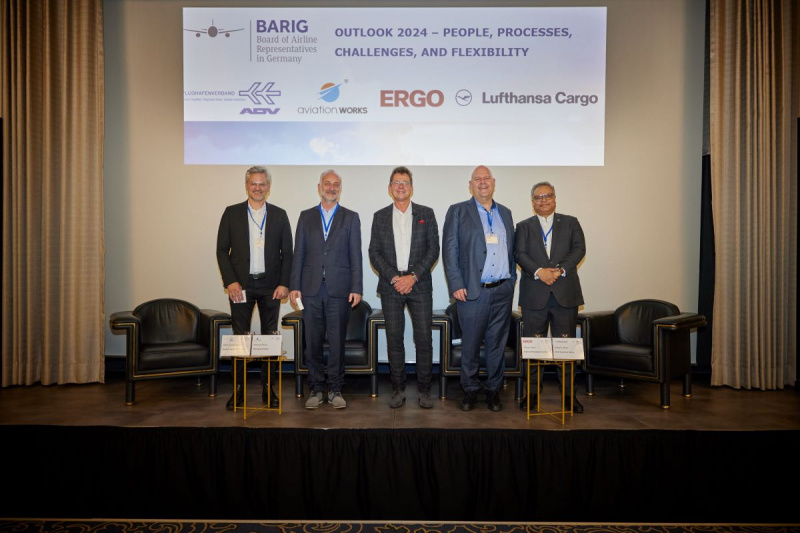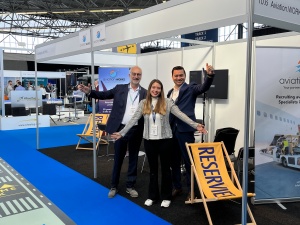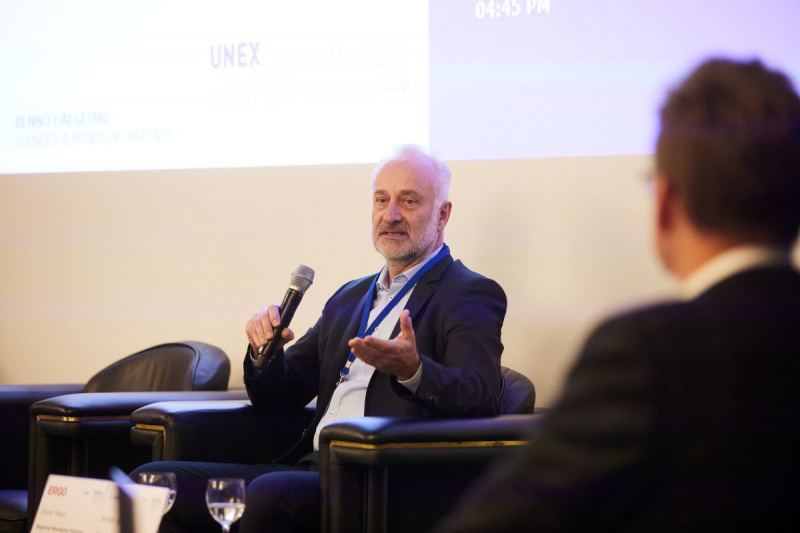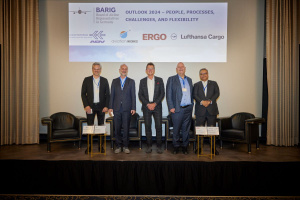Temporary recruitment from non-EU countries – a model for the aviation industry in Germany?
15/12/23 16:02 by Markus PaulyPersonnel shortages in 2022 and 2023 led to problems in operational areas of the aviation industry.
Availability and lengthy processes (work permits, security audits , language requirements, driving license recognition…) and housing situation hinder recruiting in such countries like Germany, Netherlands, Switzerland and much more.
Talking about Germany as the country were aviation.WORKS is located and active, the government put a so called Skilled Workers Immigration Act into place. It allows especially a short-term quota employment from countries outside the EU.
Could this help to alleviate the problems in the following years? The new opportunity is interesting, but also poses a challenge for the aviation industry and all stakeholders.
What is the new Skilled Workers Immigration Act about?
Several changes have been introduced with this new regulation, which have the ability of opening the doors further for foreign skilled workers into Germany. This applies to the previous salary threshold on which the EU Blue Card scheme was based. The list of “shortage occupations” is also being expanded. The new regulation will allow skilled professionals without a university degree to come to Germany if they can demonstrate specific qualifications. But let’s concentrate on parts which are of interest for the aviation industry and especially the shortage of Ground Handling staff in Germany which we saw the last 2 1/2 years.
Western Balkans settlement
As part of the Western Balkans regulation, people from the 6 Western Balkan states Albania, Bosnia and Herzegovina, Kosovo, the Republic of North Macedonia, Montenegro and Serbia can work in Germany even without proof of qualifications.
The regulation is now permanent (on November 18, 2023) and the Quota will be doubled from 25,000 to 50,000 people/year (comes into force on June 1, 2024)
Short-term employment of third-country nationals
The changes to the regulations introduce a new possibility for the short-term employment of third-country nationals, regardless of their qualifications. As soon as the Federal Employment Agency (BA) sets a needs-based quota - this is also possible differentiated for certain economic sectors or professional groups - interested employers can apply for a work permit or approval of a residence permit for workers from abroad.
Employment conditions:
1) The employer is bound by collective agreements and the workers are employed in accordance with the applicable collective working conditions,
2) the employer undertakes to fully cover the necessary travel cost
3) the planned employment does not exceed eight months within 12 months and
4) the weekly working time is at least 30 hours.
Implementation of the initiative
The process as defined in the regulation doesn’t sound that easy: The BA first of all has to set a quota, which they do at the moment. Based on the quota employers can apply for a work permit or approval of a residence permit for the desired skilled workers at the Employment Agency. To do this, employers must provide documents, such as the employment contract, proof of qualifications and confirmation from the quota allocation office in the country of origin. The employment Agency then checks whether the requirements for employment are met and, if necessary, grants approval.
Outline of a possible recruitment process
A efficient recruitment process could be defiend like this:
- Recruitment in foreign country (Advertising, Communication, Qualification Check)
- Organizing the documents needed foreign residence permit and for Security Check (“Zuverlässigkeitsüberprüfung”)
- Contracting in Germany, approval with local BA
- candidates from abroad have to apply for a residence permit at the German diplomatic mission (embassy or consulate) in their home country
- Organize housing
- Optional Prequalification (Security, DGR, Language….)
- Transfer and onboarding including additional issues like health care, tax registration number and more etc.
What opportunities does the new law hold for the aviation industry in Germany?
-
Manage the peaks
Get seasonal staff on board, which could be available year by year. This refers to the type of candidate who leaves his family for 6-8 months to get the money to live on
-
Help closing the demographic gap
Today we face mor or less two groups of people coming to Germany for blue collar work in the aviation industry:
Those who want/need to leave the family for a while in order to earn the money to live on, which they cannot get in their home countries. They often prefer a temporary stay for 6-9 months and make some money for the family to live on. These group of people might be interested to continue this way of employment for the next years.
And second mainly young people who want to start their career in Germany, as they do no find adequate working places in their home countries. A lot of this candidates are fluently in English and have university degrees. If the like the culture, learn the language and acclimatize they are of a high value because they will develop.
If you analyze how the demographic gap can be closed, especially young (educated) people coming to Germany to start the job/working career is of great value. As a long-term perspective the goal of keeping them in the country when German language skills has grown should be considered.
What challenges does the new law hold for the aviation industry in Germany?
There are some challenges in implementing the new possibilities. First of all we need to mention that a realistic view on the costs for 8 month productive working time could be 25%-35% higher as for local employees. Mainly this is driven by housing and transfer costs.
Beside the orchestration of the total recruitment process, which is a challenge in stakeholder management there are two mayor challenges.
Language skills
In most of the ground handling jobs it is still required to have medium German language skills. This is defined by the authorities as a part of security measures. It will be very challenging to find German speaking B1 level workforce in third countries.
Housing
Find adequate housing solutions is already very challenging, as German cities like Berlin, Frankfurt, Munich - where the airports are located - have already a shortage here. It will be necessary that the employers will take over a certain amount of the housing costs, as an employee is not able to pay more than 500-600€ per month. We expect the housing costs to be 1000€-1200€ per month an employee.

The topic was discussed on a panel at BARIG, the Board of Airlines Representatives in Germany. We would be happy if the stakeholders will work together and realize a good solution to eliminate the shortage of staff for the following years, let us implement it.
German Version
More articles

15/07/25 3:45
The aviation industry is on the brink of a significant transformation, with pilot demand soaring globally. As we look ahead, the next decade promises an unparalleled need for skilled pilots, driven by the resurgence of travel and the introduction of ... ...
Why should you consider to become a pilot right now?
15/07/25 3:45 by Markus + ChatGpt
As pilot recruiters we can say that we have a good overview about the most recent figures of pilots demand. Being at Pilot Expo 2023 in Berlin in February 2023 we met a lot of airlines with a dramatic shortage ... ...
 Will there be a shortage of staff in the Aviation industry in 2023?
Will there be a shortage of staff in the Aviation industry in 2023?
15/07/25 3:45 by Markus Pauly
Roundtable and World Aviation Festival It was a pleasure for our MD Markus moderating the Roundtable Airport 2 on the World Aviaiton Festival 2022 in Amsterdam - A lively discussion about the shortage of staff in 2022, the reasons behind and how ... ...







